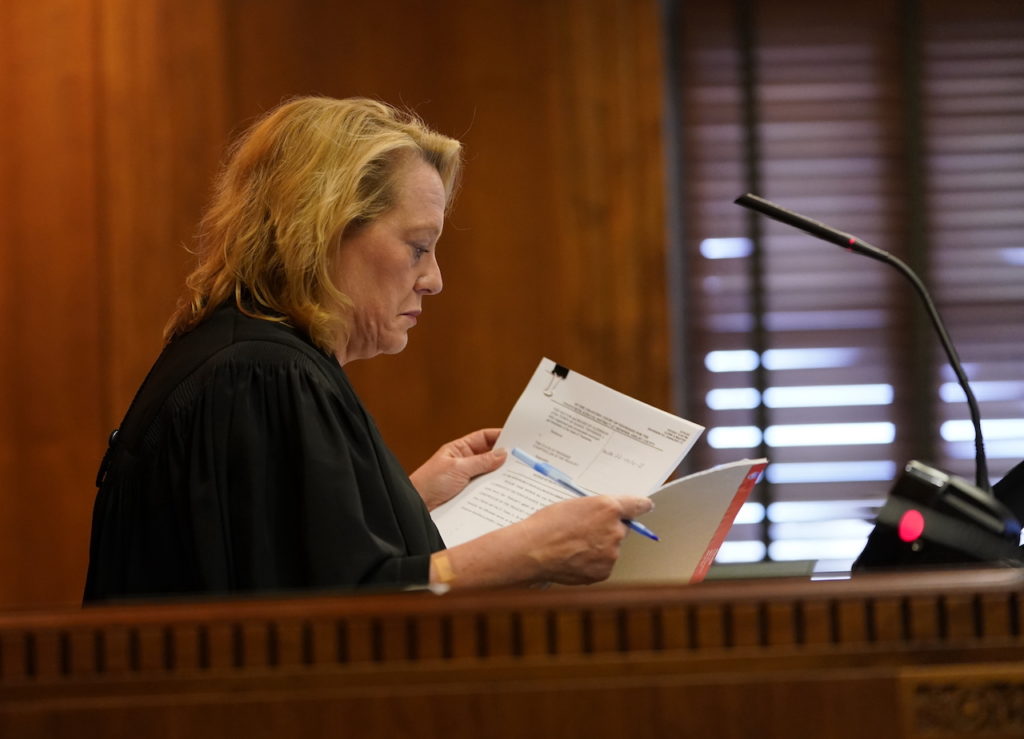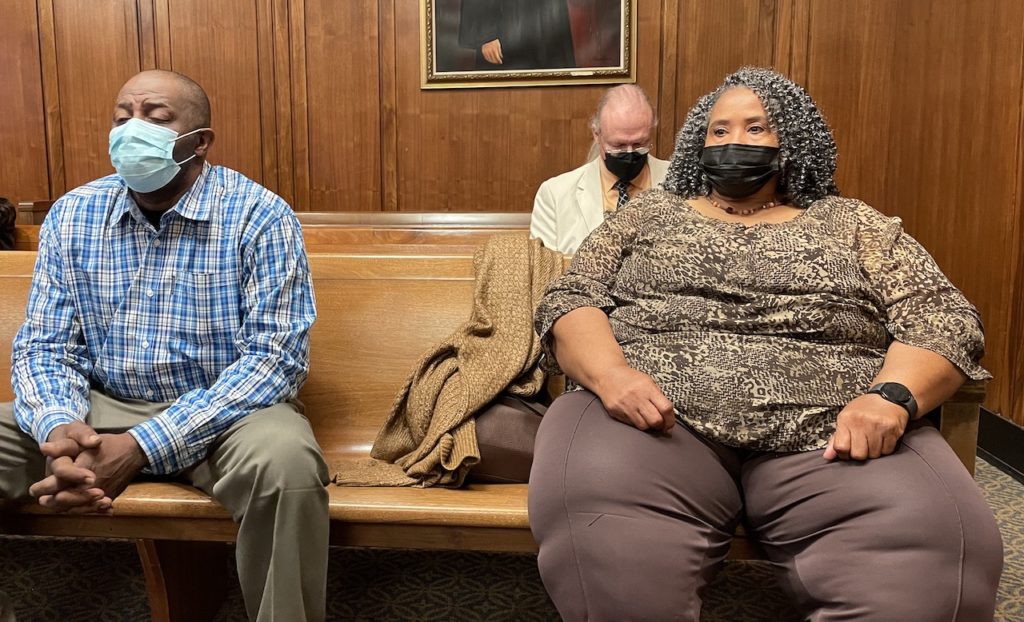
A Nashville judge may step in to protect the West Tennessee town of Mason, which sits less than 10 miles from the megasite where Ford is building a $5.6 billion plant. On Monday, the state comptroller took over its finances — requiring the town to aggressively pay down its debt before paying any other bills each month.
Davidson County Chancellor Anne Martin heard arguments from both sides Wednesday. The town sued to halt the financial takeover. And Mason Vice Mayor Virginia Rivers left encouraged.
“No matter what, the judge understood us,” she told WPLN News. “They understood where we were coming from. They understood our counsel. So I feel that we’re going to be ok.”
In early March, Tennessee Comptroller Jason Mumpower took the unprecedented step of writing a letter to the 1,337 residents of Mason, which is a majority-Black town, asking them to relinquish their town charter rather than fix their budget problems. The town is preparing for a historic influx of workers and tax dollars.
During Wednesday’s hearing, Chancellor Martin said the request put the town in “a no-win choice situation.” Town officials say they felt “attacked” and noted that majority-white towns in East Tennessee with far deeper financial problems were never asked to dissolve.
 Mark Humphrey AP Pool Photo
Mark Humphrey AP Pool PhotoChancellor Anne Martin of Davidson County Circuit Court is considering Mason’s lawsuit against the Tennessee Comptroller, attempting to fend off some of the state’s financial oversight.
The chancellor did not comment on the racial lines, though they were obvious in the Metro Courthouse. The comptroller’s legal team is entirely white. Mason’s side is Black, including the General Counsel for the NAACP, who traveled from Baltimore to be in attendance.
Instead of dissolving, Mason opted to fix its budget with the comptroller’s oversight. But the town is challenging whether the state has the authority to dictate how nearly every dollar is spent. The current agreement requires the comptroller’s office to approve any expenses over $100.
“It’s offensive,” attorney Van Turner, who is also a Shelby County Commissioner, said on behalf of his client. “We think there is an aspect of discriminatory treatment when you look at this case.”
Mason’s troubles stem mostly from using funds collected by the local utility department to pay for general expenses. More than $600,000 needed to be paid back, and COVID stimulus funding has helped lower the amount needed to be paid back to roughly $250,000.
The comptroller’s “corrective action plan” is supposed to end once a new audit is performed and a budget for 2023 is approved by the state.
“The comptroller wants to help,” attorney J.P. Urban said during the hearing. “The town stands only to benefit.”
Dismissive laughs could be heard from Mason’s elected officials who drove nearly three hours to attend in person.
A decision on the temporary injunction is expected in the middle of next week.
 Blake Farmer WPLN News
Blake Farmer WPLN NewsMason Mayor Emmitt Gooden and Vice Mayor Virginia Rivers drove nearly three hours to attend Tuesday’s hearing. The town has sued to push back against financial constraints placed by the Tennessee Comptroller.

